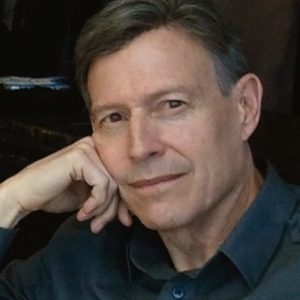 Many long-time Mormon Matters listeners will recognize the name Charles Randall Paul, (or, as host Dan Wotherspoon calls him 90 percent of the time, “Randy” Paul). He has been a wonderful and engaged panelist on various episodes that have explored topics in which he is fluent, but most often references to him and his thinking are more personal than that, as Randy is the friend who first became a mentor and lively discussion partner of Dan’s when he was in his first year or so of deep questioning about Mormon teachings, scripture, and claims, and, most intently, if he could ever find a true “home” in Mormonism again now that he had begun to see its narratives and theological tenets in much more complicated ways. Randy was that pivotal person who came into Dan’s life at this time and offered him a glimpse at the kind of animated and questing spiritual life of someone who was also enjoying his associations in his ward and other Mormon circles. Their friendship and collaborations on various projects have now been going on for 29 years. Hence, Dan has decided it’s time he took the opportunity to really offer Mormon Matters listeners a fuller dose of Charles Randall Paul and a chance for them to sense for themselves why he served Dan so well by modeling for him a kind of spirituality that might one day, if he kept leaning into the complexity, might unfold within him, too.
Many long-time Mormon Matters listeners will recognize the name Charles Randall Paul, (or, as host Dan Wotherspoon calls him 90 percent of the time, “Randy” Paul). He has been a wonderful and engaged panelist on various episodes that have explored topics in which he is fluent, but most often references to him and his thinking are more personal than that, as Randy is the friend who first became a mentor and lively discussion partner of Dan’s when he was in his first year or so of deep questioning about Mormon teachings, scripture, and claims, and, most intently, if he could ever find a true “home” in Mormonism again now that he had begun to see its narratives and theological tenets in much more complicated ways. Randy was that pivotal person who came into Dan’s life at this time and offered him a glimpse at the kind of animated and questing spiritual life of someone who was also enjoying his associations in his ward and other Mormon circles. Their friendship and collaborations on various projects have now been going on for 29 years. Hence, Dan has decided it’s time he took the opportunity to really offer Mormon Matters listeners a fuller dose of Charles Randall Paul and a chance for them to sense for themselves why he served Dan so well by modeling for him a kind of spirituality that might one day, if he kept leaning into the complexity, might unfold within him, too.
At a time in many Mormon “faith undergoing challenges” discussions when much of the focus is on the problems Mormonism has with certain claims (if taken literally) and the ways it has told its story, and when many conversations are caught up in endless loops that involve listing troubling issues and how Mormon apologetics fails to offer satisfying responses, or when they focus on how certain LDS voices that are gaining traction don’t seem to be concerned that the “versions” of Mormonism or the Gospel of Jesus Christ that they share are not actually what is instantiated in Mormon wards and manuals (nor very often put forth in General Conference addresses), this Mormon Matters episode reverses the trend by featuring a conversation between two old friends who, in many ways, live and engage in a kind of “post-apologetic” Mormonism. It explores what it is in Mormonism that offers them the “roominess” they enjoy? What gives them hope for the future? What does it feel like to have found a genuine peace even in the midst of difficult dynamics and tensions at work in the LDS church and their local communities? Perhaps the biggest gift that Randy gives in this conversation is sharing with us how he came to be who he is (in the world and in relation to Mormonism), how he came to hold the views he does and why he is willing to keep following certain hunches about God and humans and the experiment of mortality to see what additional treasures might be there.
Part 1 focuses on Randy’s upbringing, temperament, and certain experiences that marked new insights or offered him greater confidence. In these tellings, it also discusses many Mormon ideas, practices, and pressures.
Part 2 is a more focused examination of what it truly means to be “at peace” in oneself and with things that are external to you. (Hint: It absolutely doesn’t mean one is living a tensionless existence!) It also explores some of the social and psychological dynamics of “intra-religious” conflict, and why discussions and disagreements within religious communities can be so difficult to navigate. He offers great insights that are relevant at the larger, group level, but which can also transfer into our more personal relationships with those whom we find ourselves at odds with (at least for now!)


Comments 1
Near the beginning of the episode Charles mentioned he felt science was becoming stranger than theology (or something to that effect). It wasn’t talked about in their conversation but that sounds fascinating and if like to hear more about it or at least be pointed in a direction where I could study that more.